Medical Malpractice Concerns for Doctors Offering Telehealth Remote Services
In recent years, especially in response to the COVID-19 pandemic, telehealth has transformed the healthcare landscape, allowing for convenient access to medical consultations from the comfort of your own home. This innovative technology continues to expand, though it does raise important questions about the legal implications, mainly in the context of medical malpractice. Let’s investigate what medical malpractice in telehealth requires, and the legal considerations should you believe you’re in such a situation and need to speak with a Florida Medical Malpractice Attorney.
The Rapid Growth of Telehealth and Telemedicine
Telehealth, also known as telemedicine, involves the use of technology allowing for remote medical consultations and healthcare services. These services can incorporate video calls, phone calls, and even secure messaging. The convenience of accessing telehealth has made it a sought-after resource for patients worldwide.
- Remote Medical Consultations: Telehealth uses technology to enable remote medical sessions, allowing patients to connect with healthcare practitioners without the need for in-person visits.
- Variety of Communication Channels: Telehealth services offer different communication channels. These include video calls, phone conversations, and secure messaging platforms, which allow patients and healthcare professionals a good deal of flexibility.
- Global Accessibility and Convenience: The convenience of telehealth has helped to increase its popularity due to it allowing patients to access healthcare services from their own homes or anywhere with an internet connection, promoting greater access to medical care, particularly in remote or underserved areas.
The Legal Implications of Providing Remote Medical Services and Virtual Visits
As telehealth gains acceptance, it’s important to recognize that it brings a distinctive set of legal considerations regarding medical malpractice. Some key points to understand:
Maintaining the Standard of Care
Practitioners in traditional in-person healthcare settings follow established protocols and standards of care, which serve as a benchmark for providing quality medical treatment. It is critical to maintain these high standards when switching to telehealth to ensure that patients continue to receive the same grade of treatment as they would in a physical clinic or hospital. This necessitates that healthcare professionals modify their methods, provide accurate assessments, and maintain a strong patient-provider relationship while embracing technology to enable remote consultations.
Obtaining Informed Consent
Patients must provide informed permission for telehealth services to be ethical and effective. This includes knowing the inherent constraints of remote consultations. Certain components of a physical examination, such as touch-based assessments, may not be possible, thereby affecting diagnostic accuracy. Informed consent should include the recognition of potential hazards, such as data security and privacy issues, to ensure that patients are completely informed and comfortable with the telehealth experience.
Navigating Technology Failures
Telehealth relies on technology, which can sometimes fail. If a technical issue prevents a healthcare provider from offering appropriate care or results in a misdiagnosis, it may lead to legal complications.
Ensuring Data Security and Patient Privacy
Patient data security is highly important when it comes to telehealth. Compliance with health privacy regulations is crucial for avoiding legal ramifications, such as HIPAA in the United States.
What to Do if You Suspect Medical Malpractice from a Telehealth or Telemedicine Provider
If you feel that you were the victim of a medical error such as misdiagnosis, misfiled prescription, due to a medical provider’s negligence during or after a telehealth appointment, you should seek legal advice as soon as possible. Here’s a checklist of what to do:
Gather Information
Collect all relevant information, including medical records, communication with the healthcare provider, and any evidence that supports your case. Detailed documentation is key.
Consult Another Healthcare Professional
Consider seeking a second opinion from another healthcare professional to assess the accuracy of the original diagnosis or treatment plan.
Contact the Provider
Contact the telehealth provider to discuss your concerns. Misunderstandings or errors can often be resolved through open communication.
File a Complaint
If unsatisfied with the provider’s response or if you believe you have a valid claim, consider filing a complaint with your state’s medical board or relevant regulatory authority.
Consult an Attorney
Should you decide to file a lawsuit, you need to work with a medical malpractice law firm. They will be able to assess your case’s facts and guide you through the legal process.
Preserve Evidence
You will want to preserve all forms of evidence. Keep all relevant records and communication as they may serve as crucial evidence if you decide to pursue legal action.
Telehealth has brought substantial ease to healthcare, but it also comes with exclusive legal implications, especially in the medical malpractice field. To safeguard your well-being and seek appropriate remedy, you’ll need a strong awareness of your rights, the standard of care, and the actions to follow if you suspect malpractice.
Each situation is distinct, and it is necessary to consult with a law firm that specializes in telehealth and medical malpractice. You will be able to appropriately navigate the legal repercussions of telehealth and preserve your rights as a patient if you are up to speed and hands-on with your pursuit.














